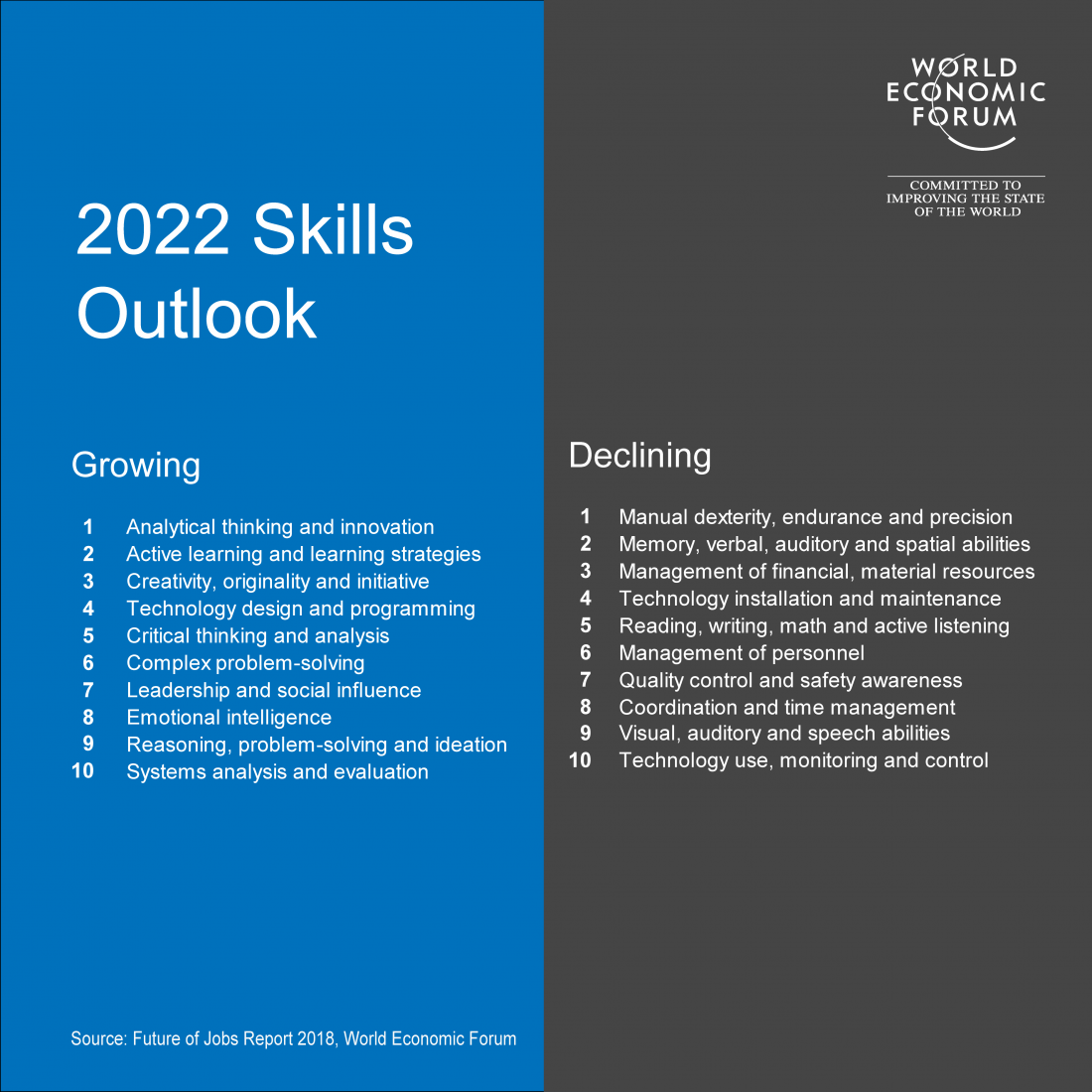The Future of Jobs – Are Schools Ready?
According to the future jobs report 2018 from the World Economic Forum, there are a number of skills that will decline. Whilst some will decline, others will emerge to a new prominence.
The report states, “Proficiency in new technologies is only one part of the 2022 skills equation. “Human” skills such as creativity, originality and initiative, critical thinking, persuasion and negotiation will likewise retain or increase their value, as will attention to detail, resilience, flexibility and complex problem-solving. Emotional intelligence, leadership and social influence as well as service orientation are also set to see particular increase in demand relative to their current prominence today.”
Reading, Writing, Mathematics, and active listening are set to decline according the the diagram above. This probably needs to be unpacked a little. For example, the four areas mentioned above are essential to most of the skills outlined above in the blue box. The challenge for educational leaders and school leaders will be to try and teach these in a much more contemporary way. For example, Children will probably need to have more exposure to projects that call for a holistic use of the skills of Reading, Writing, Mathematics, and active listening. The challenge seems to be to design better learning opportunities for their use rather than the traditional subject based approach. This has to be done carefully so that sequential development of these subjects can still take place.
The Global Perspectives Curriculum developed by Cambridge International Assessment is one approach that has probably come closest to addressing the need to realign learning to the 2022 skills matrix. Global Perspectives is set to be entering the Primary phase. This shows a confident belief that even Primary aged children should be taught to assimilate their skills and knowledge in a more challenging way. Most jurisdictions rely of the Government to publish a curriculum. Despite the centralisation of Curriculum, schools still have a huge autonomy to build their own model.
The diagram above is from New Zealand and it illustrates the scope within the current system to address some of the issues from the report. Maverick schools will chart the way forward. Government policy will often catch up with these schools. The state is often contrained in its ability to respond to changes. Good leaders have a sense of what their schools should be doing to prepare their students for a rapidly changing world. Bermuda and other island nations must embrace the future before the future catches them off guard.
Thie lecture below was hosted by the RSA pursues the question, what steps do we need to take across our school system to ensure that all our young people receive the kind of broad, balanced and rich education that will prepare them to navigate a rapidly changing socio-economic landscape; to flourish as individuals; and to work with others to create a better future for all?
Educating for a Better Future | David Willetts | RSA Replay
The International Baccalaureate was created 50 years ago in 1968 to offer an education with a specific mission: “to develop young people who help to create a better and more peaceful world through intercultural understanding and respect”.
The full report can be found below



